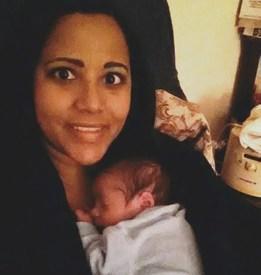Working out without cutting calories

PlumpKitten
Posts: 112 Member
Just curious.
What if someone is a bit overweight - by, say, 20-30 lbs.
And that person is really good about restarting exercise - alternating circuits with free weights, with cardio. But it not good about keeping to a low calorie count.
I've always been told that weight loss comes mostly from diet, and toning mostly from exercise.
If you suddenly increase the exercise -- but don't particularly diet -- what happens?
* You lose anyway, just slower,
* You stay about the same weight, but the shape changes. Your belly goes down, your muscles tone up
* Nothing much happens if you don't also diet.
Just curious!
What if someone is a bit overweight - by, say, 20-30 lbs.
And that person is really good about restarting exercise - alternating circuits with free weights, with cardio. But it not good about keeping to a low calorie count.
I've always been told that weight loss comes mostly from diet, and toning mostly from exercise.
If you suddenly increase the exercise -- but don't particularly diet -- what happens?
* You lose anyway, just slower,
* You stay about the same weight, but the shape changes. Your belly goes down, your muscles tone up
* Nothing much happens if you don't also diet.
Just curious!
0
Replies
-
Great questions!! I'm curious myself, can't wait to see what people say! !0
-
If you don't pay attention, then you gradually expand intake and decrease other casual activity to meet the increased demands of exercise and thus remain in an energy balance.
Research has shown poor results with an "exercise only" approach.0 -
It depends how much you're eating in relation to your maintenance requirement. If you exercise enough to create a deficit, you will lose. If you don't exercise enough to create a deficit based on your intake, you will not lose and might continue to gain if your'e at a surplus.
The visible changes also depend a lot on that caloric balance. Most of what people see is not the result of building muscle but rather the result of maintaining lean mass that is already present while stripping away the fat over it. Building muscle is hard work ... even more so for women due to hormonal levels. Body recomposition is a time consuming process that requires a lot of work.0 -
If you don't burn through exercise what you are eating plus some, then you will still gain.
If you burn exactly what you are eating, you will maintain.
If you burn more than you are eating, you will lose.0 -
If you continue eating exactly the same but increase exercise then you would lose weight (supposing you are eating at maintenance at present) because you are creating a deficit.
However, unless you accurately track your calorie intake, many people will naturally increase calorie intake (eg. due to increased hunger) to make up for the burns, thus cancelling out the deficit. Some people may also overcompensate for the exercise and therefore start gaining weight.
In reality the 'exercise alone' approach therefore rarely works.0 -
If you suddenly increase the exercise -- but don't particularly diet -- what happens?
* You lose anyway, just slower,
* You stay about the same weight, but the shape changes. Your belly goes down, your muscles tone up
* Nothing much happens if you don't also diet.
"Most weight loss occurs because of decreased caloric intake. However, evidence shows the only way to maintain weight loss is to be engaged in regular physical activity."
http://www.cdc.gov/healthyweight/physical_activity/index.html
If you're in a calorie deficit, you'll lose weight.
It's much easier to do that by controlling what you eat.
You'd probably lose fat and increase muscle by exercising, so the weight might not change much, but use your tape measure.0 -
If you don't pay attention, then you gradually expand intake and decrease other casual activity to meet the increased demands of exercise and thus remain in an energy balance.
Research has shown poor results with an "exercise only" approach.
^this.
You can lose without "cutting" calories because of the increased activity. But if you're not "counting" calories you'll most likely end up eating more than you did before you increased the activity.
ETA: and at 20-30 pounds out, cutting along with exercise is a much more expedient solution.0 -
Not a good idea, especially if you're unaware how much you're currently eating.
It's a lot harder to burn a lot through exercise than it is to cut some food calories.
You only need to deduct 20% to be successful.
Choose the tried and true method rather than the easier but sorta useless one.0 -
I read an interesting book recently that quoted a scientific study that found that women in particular are exceptionally good at 'making up' the extra calories burned by exercise even if they *believe* they're making absolutely no changes to their eating habits before exercising. I can't remember the name, it's The First 20 Minutes or something, but it was kind of fascinating, and why I went back to using MFP to count my calories.
Edited to add: I'm definitely in Group 2 here as in the past five weeks, I've lost over three inches from my waist, and exactly one pound from the scale ^_^0 -
Thanks, everyone, for the input. I understand that diet + exercise is the best way to go. I was just curious what happens when it's exercise alone.
Everyone is different. In my case, exercise does not make me much hungrier, and I don't tend to eat more when I'm exercising more. I do track calories, so I can see this. (Swimming is an odd exception. I'm always famished after swimming). I'm also not cutting back on other activity to compensate. I have two toddlers and no car.... so I really have no choice but to be active.
However, my calorie intake has gone up recently, just because I've been less disciplined. When I first started losing the weight from baby #2, I was very strict with myself. And I wasn't working. Now I'm busier, back at work, and the iron will to diet has faded a little.
If you count net calories (intake - exercise), I hover right around maintenance or just below. And so, not surprisingly, I am neither gaining nor losing. However, doing circuits with free weights, I can definitely feel tightening up in the arms, legs, butt, etc. The belly is a bit harder -- though I realize that is mostly related to fat-loss, and it's a hard part of the body for new moms.
Thanks again for the input! I'll keep you all updated on how things turn out.0 -
Adding in more calories isn't always bad... it's not always a straight numbers game.
I say that because I do very well with a 1400 calorie per day balance where I work out about an hour a day. So, really, I'm eating about 1600-1800 and burning the rest off. Trying to break a plateau, I dropped my calories down to 1200/day which left me starving at that level of workouts so I cut down my workouts. Still starving and not losing. So I cut out hard working out altogether, just light things like walking, and never lost a pound until I went back to eating more and working out harder.
I also say that because some foods react crazy with your body and you might have great success by keeping calories the same but eating different foods. For example, dairy products make me heavier. I'm not allergic or anything.
That said, I agree with others above who said that even when you think you're keeping calories the same, you often aren't. They say abs are made in the kitchen.
And to answer the original question, if you worked out more and seriously didn't take in more calories sure you'd reverse the trend but whether or not you lost would depend on whether the level of workout was enough to overcome whatever you were doing to cause you to lose weight every year. That is, if you normally gain about 10lbs every year, and you walk 1 mile a day, you might be helping your body but not enough to balance out that 10lbs a year. Instead of gaining 10, you might only gain 2 (which is better but probably not what you want).
OTOH, I have a friend who lost about 30 lbs and keeps it off and the only thing she changed was walking a mile every day (makes me sick, lol, j/k).0 -
I guess my question is this.
Let's say - however the net calories work out - someone's weight stays the same.
However, that person increases exercises, particularly weight bearing ones.
Does that person look much different from exercise alone? Does the shape of your body change visibly?
Some would argue that 130 lbs of lean muscle looks different than 130 lbs of flab.
Other people say that, no matter how hard you work out, if you don't diet, the fat will always cover up your muscles and shape. That - as someone said above - body recomposition is actually really hard.
Opinions? Experiences?0 -
You're not asking a real question. You're completely skipping the part where, if a person consumes the same calories while adding exercise to their normal weekly activities they will put themselves into a calorie deficit and lose weight.
If your TDEE without exercise is 2400 and you're eating right around 2400 (maintenance level) each day and then begin exercising 5 days per week to the tune of 300 calories per day, you'll have a 1500 calorie deficit each week and be on track to losing a half pound per week. It's just math, not magic. While this part works fairly straightforward, there are two large hurdles that people are trying to get you to recognize.
1. A person that increases activity almost always begins eating more, even without realizing it.
2. A person that was actually eating at maintenance level doesn't become 30 pounds overweight. So if you were actually eating 2600 calories per day, adding the exercise wouldn't make you lose weight. Instead you would just cease gaining weight at the slow rate that you were.0 -
If you suddenly increase the exercise -- but don't particularly diet -- what happens?
* You lose anyway, just slower,
* You stay about the same weight, but the shape changes. Your belly goes down, your muscles tone up
* Nothing much happens if you don't also diet.
Just curious!
I'm terrible at dieting. I love food and going out for drinks. I'm in option b. Recently started weightlifting and haven't lost weight but my shape is changing - am down on my measurements - and I haven't cut calories to limit my eating at all. I am going to need to cut back to 2000 calories a day to see proper results but I think as long as you're not eating daft amounts it can be done, a lot of weights programs suggest not to cut calories as it limits your chance to grow muscle.0 -
I guess it boils down to, do you really want to change or do you simply want to attempt it for a while, quite and say, well...atleast I tried?
If you want to lose weight, you have to stop filling your pie hole. Otherwise, you will see very little movement and simply give up.
The number one reason why people give up on exercise is they simply don't see improvement. If you don't restrict your diet, you won't see movement and give up.
Call this tough love, from someone that has been there. I was obese 2.5 years ago and now I'm at the top of my game. I'm doing things at 48 that I couldn't do when I was 38, 28, or even 18. And I get comments all the time...just yesterday a guy thought I was his age...27 ha.
You have everything you need to turn your life around...so are you going to lift that donut or are you going to lift that 25 lb dumbell? Your call.0
This discussion has been closed.
Categories
- All Categories
- 1.4M Health, Wellness and Goals
- 398.2K Introduce Yourself
- 44.7K Getting Started
- 261K Health and Weight Loss
- 176.4K Food and Nutrition
- 47.7K Recipes
- 233K Fitness and Exercise
- 463 Sleep, Mindfulness and Overall Wellness
- 6.5K Goal: Maintaining Weight
- 8.7K Goal: Gaining Weight and Body Building
- 153.5K Motivation and Support
- 8.4K Challenges
- 1.4K Debate Club
- 96.5K Chit-Chat
- 2.6K Fun and Games
- 4.8K MyFitnessPal Information
- 13 News and Announcements
- 21 MyFitnessPal Academy
- 1.6K Feature Suggestions and Ideas
- 3.2K MyFitnessPal Tech Support Questions










